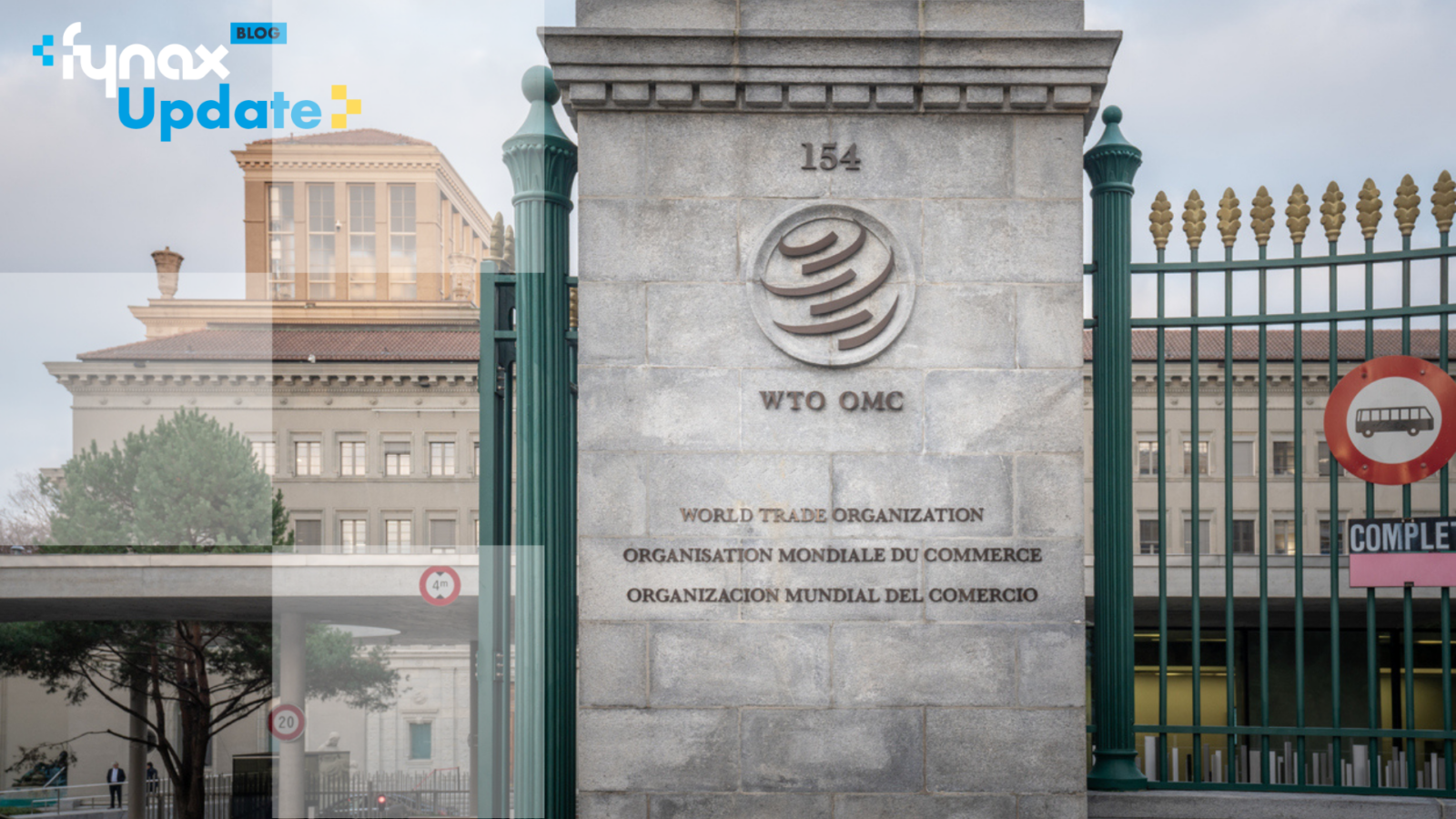Digital customs barriers fall: WTO agreement creates framework for global e-commerce
Share this article
Tags
Categories

After years of negotiations, the 91 member states of the World Trade Organization (WTO) have now agreed on a first draft and joint text of a comprehensive international agreement on e-commerce. communicated. In a joint declaration, the WTO members announced that there is now a common basic consensus that should form the basis for a new agreement on digital trade. The focus is on facilitating cross-border trade and promoting innovation in digital commerce. The agreement thus sets new standards for global online trade. But what exactly does this mean for online retailers? And what opportunities and risks does the new agreement entail? We have summarized all the important information for you.
The key points of the agreement
The ban on customs duties on digitally traded goods and services is essential for the implementation of the new directives. Digitally traded goods include electronic transmissions and digital goods such as software packages, e-books, music and films. By eliminating customs duties on digital trade, WTO members expect better cross-border networking of traders and a greater volume of trade in general, as trade will be simplified across borders.
Part of this strategy is also to increase the use of digital signatures and electronic invoices in digital commerce and thus promote global digitalization. In the EU and Germany E-invoices mandatory from 2025 as part of the EU-wide "VAT in the Digital Age" (ViDA) legislative initiative. The main aim of the new strategy is therefore to achieve closer cooperation between international players in order to minimize cybersecurity risks and thus create a secure digital infrastructure for secure trade.
The role of the European Union
The European Union also hopes that the new measures will modernize European trade. The EU's focus is particularly on consumer protection on the internet and the creation of a fair market, which should also benefit from the participation of consumers and companies from developing countries. The EU therefore played an active role in the current WTO negotiations, as Brussels wants to promote the digital transformation of participating WTO member states"The EU and the other parties involved in the joint declaration-based initiative will take the necessary steps to integrate the e-commerce agreement into the WTO rulebook."
The most important facts at a glance
We have summarized the most important key points of the agreement for you here:
- Duty free: The trade agreement eliminates previous customs regulations for electronically transmitted, i.e. digitally traded goods and services.
- Data transfers & cybersecurity: Clear rules for cross-border data transfers (e.g. software, digital products or services) are formulated in order to promote international digital cooperation while ensuring the protection of personal data.
- E-payments and e-invoices: The agreement is intended to promote the security and efficiency of electronic payments and invoices in international trade and thus enable a secure transformation to digitalization.
Outlook & potential impact on online retailers
The agreement on a WTO agreement on e-commerce is an important step towards a more regulated global digital economy. However, it remains to be seen how the individual provisions of the agreement will be structured and what impact they will ultimately have on international trade. We have outlined the possible positive and negative effects here.
Fewer customs barriers, more sales? The advantages for online retailers:
- Global reachOnline retailers can export digital products and services to new markets more easily and cost-effectively without having to deal with complex customs regulations.
- ScalingSmall and medium-sized enterprises (SMEs) have a better chance of growing on the global market and keeping up with larger competitors.
- Electronic paymentsE-payments and e-bills reduce the costs of cross-border transactions and speed up payment transactions.
- Reduced bureaucracySimplified customs procedures and fewer bureaucratic hurdles reduce costs for online retailers.
- Confidence buildingThe WTO agreement creates clear rules and thus more trust among traders, which leads to greater acceptance of online trade in general.
- Legal certaintyCompanies and online retailers can better plan their business models and focus on long-term growth strategies.
- New business models: The agreement could pave the way for new innovative business models that benefit from the simplified framework conditions.
- Technological development: The promotion of digital commerce will accelerate the development of new technologies and platforms.
A storm in the digital world of online trade? Risks and challenges of the agreement
- Global competition: Increased competition can be a challenge for some companies or retailers, especially for smaller companies with limited resources.
- Price pressure: The pressure for lower prices from global competition can also reduce profit margins.
- International data transmission: The compatibility of data protection regulations in different countries can lead to complex legal issues.
- Cybercrime: Growing digital trade also harbors an increased risk of cyber attacks and data leaks.
- Special national features: Despite the global agreement, national regulations may still differ and make trade more difficult.
- Customization effort: Companies have to adapt to the new rules, which can involve costs and effort.
Further contributions




